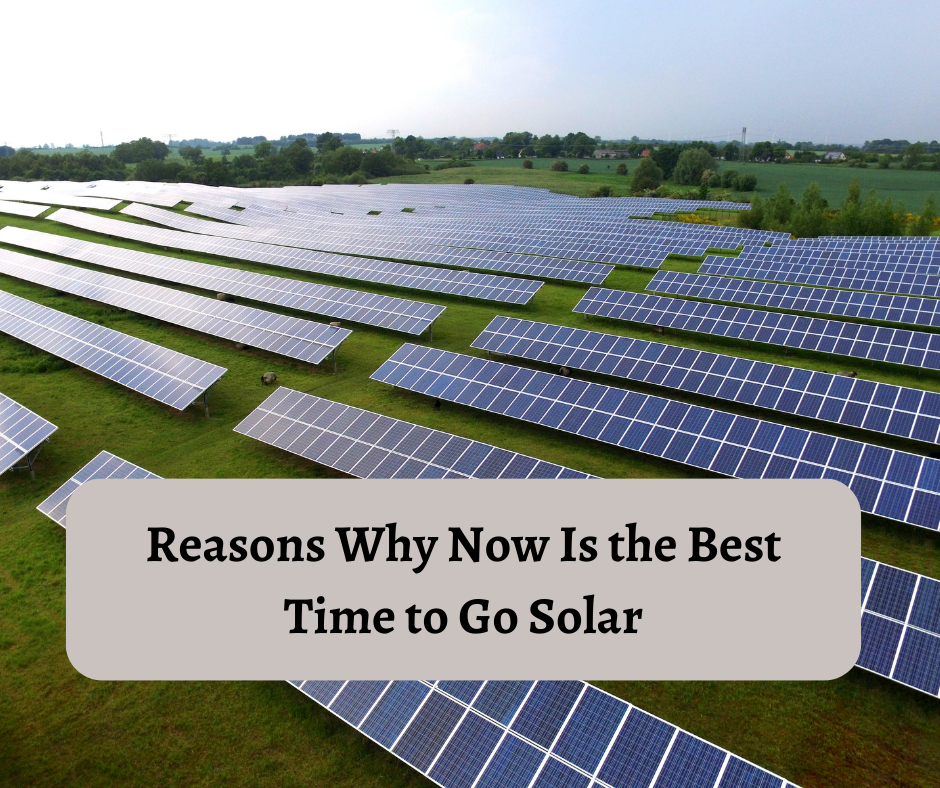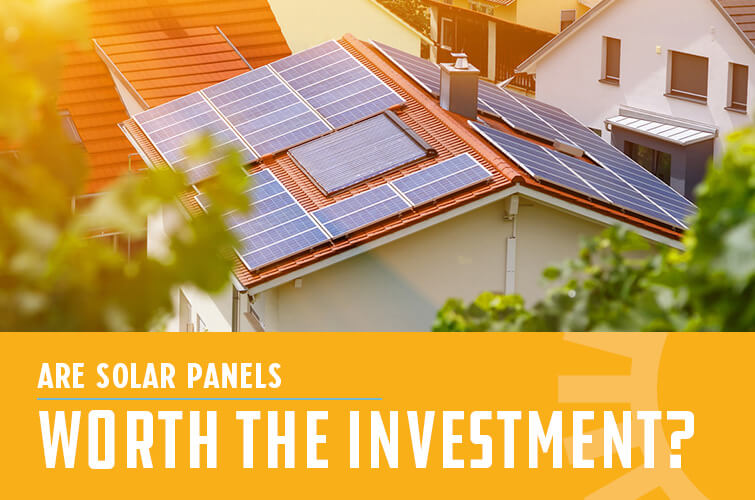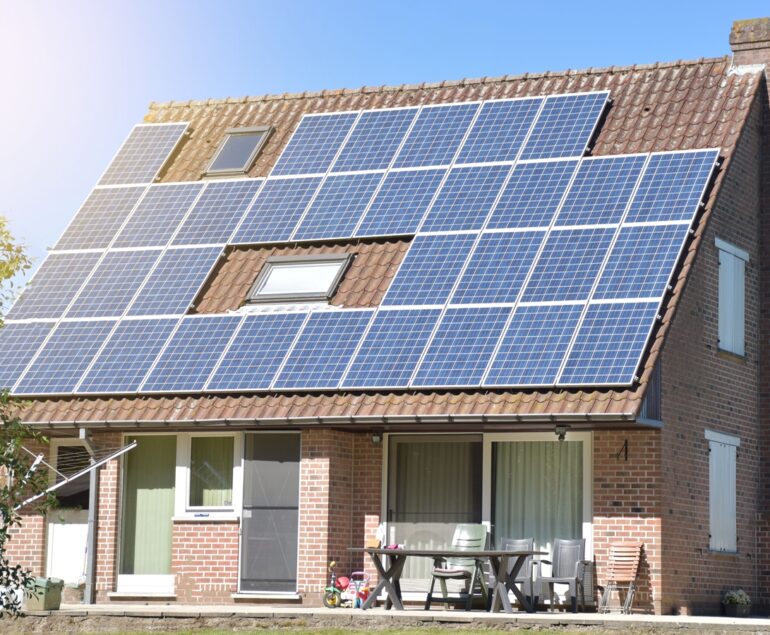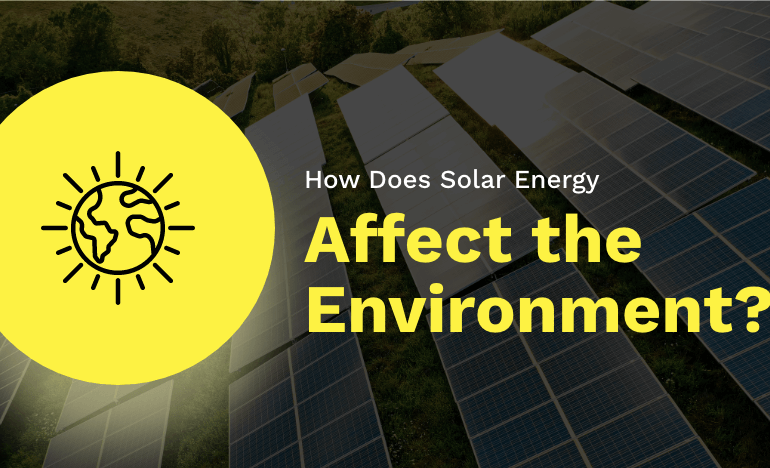Introduction: Embrace Solar Energy for a Brighter Future
Solar energy has emerged as a game-changer in the quest for sustainable and renewable power sources. As the world becomes more conscious of its environmental impact, transitioning to solar power is not just a trend but a necessity.
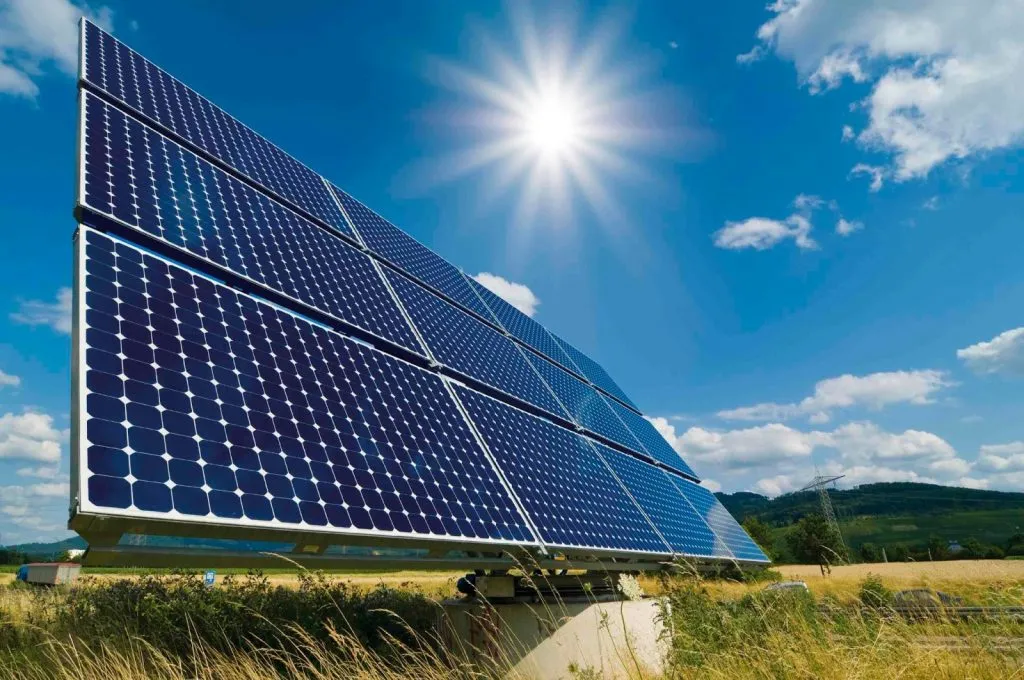
The abundant sunshine and advances in technology have made solar energy more accessible and affordable than ever before. If you’re still contemplating whether to make the switch, this comprehensive guide will showcase why now is undoubtedly the best time to go solar.
Reasons Why Now Is the Best Time to Go Solar
The following reasons highlight the advantages of embracing solar energy and the best time to go solar. Making the transition today:
1. Lower Installation Costs
In recent years, the cost of installing solar panels has significantly decreased. Advancements in technology, mass production, and competition among solar providers have all contributed to reducing installation expenses. As a result, homeowners can now enjoy substantial savings while generating clean, renewable energy.
2. Federal and State Incentives
Governments across the globe recognize the importance of promoting renewable energy sources. Consequently, many countries offer enticing incentives and rebates to individuals and businesses who invest in solar energy systems. These incentives can significantly offset the upfront costs of going solar, making it an attractive option for many.
3. Energy Independence
Relying on traditional electricity sources means being at the mercy of fluctuating energy prices and supply uncertainties. By going solar, you can break free from these constraints and achieve energy independence. With solar panels on your roof, you generate electricity, reducing your reliance on the grid and minimizing the impact of power outages.
4. Reduce Energy Bills
One of the most apparent benefits of going solar is the significant reduction in energy bills. As solar panels generate electricity, you can draw power from your solar system during the day, reducing the need to purchase electricity from your utility provider. Over time, this can lead to substantial savings on your monthly energy expenses.
5. Environmental Impact
Transitioning to solar energy is an impactful way to reduce your carbon footprint. Traditional electricity sources, such as coal and natural gas, contribute to greenhouse gas emissions and climate change. By harnessing the power of the sun, solar energy systems produce clean, renewable energy with virtually no harmful emissions, thus contributing to a greener and more sustainable future.
6. Solar Technology Advancements
Solar technology has come a long way, and the efficiency of solar panels continues to improve. Modern solar panels can generate more electricity from the same amount of sunlight, making them more cost-effective and space-efficient. Embracing solar energy now means benefiting from the latest advancements in the field.
7. Increased Home Value
Installing solar panels on your property can boost its overall value. Homebuyers are increasingly seeking energy-efficient homes equipped with renewable energy systems. Studies have shown that homes with solar panels tend to sell faster and at higher prices than their non-solar counterparts.
8. Net Metering Programs
Many regions offer net metering programs, allowing solar panel owners to receive credits for any excess electricity they generate. These credits can be used to offset electricity costs during times when the solar panels aren’t producing enough energy. Net metering makes solar even more economically advantageous.
9. Energy Storage Solutions
Advancements in energy storage technology, such as solar batteries, have further improved the viability of solar energy. Energy storage solutions enable homeowners to store excess energy generated during the day and use it during peak demand periods or at night, enhancing the overall efficiency and effectiveness of their solar systems.
10. Support Sustainable Practices
By going solar, you actively support sustainable practices and play a part in reducing the world’s dependence on fossil fuels. Being part of the solar energy movement contributes to a more environmentally conscious society, fostering a greener and healthier planet for future generations.
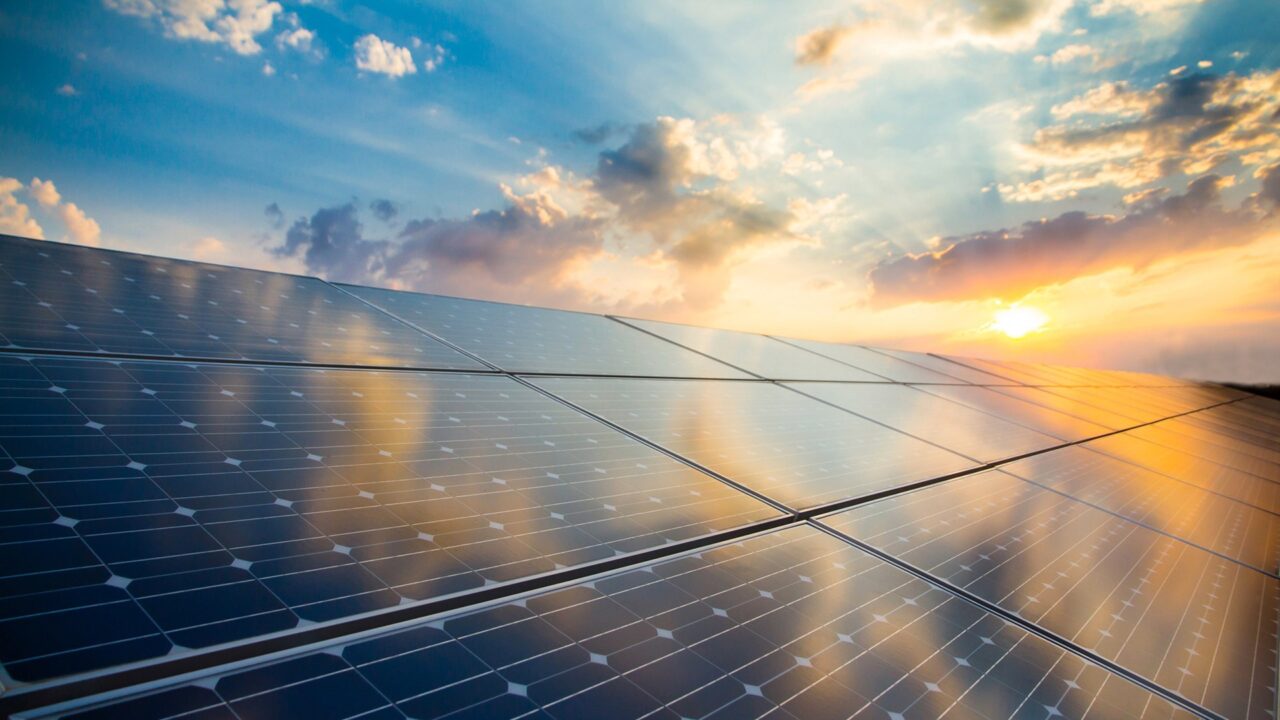
11. Local Incentives and Grants
In addition to federal incentives, many local governments and utilities offer solar incentives and grants to promote renewable energy adoption. Research the available incentives in your area to maximize the benefits of going solar.
12. Low Maintenance Requirements
Solar panels are low-maintenance systems that require minimal upkeep. Once installed, they can operate efficiently for decades with little maintenance effort and cost. Periodic cleaning and regular inspection are usually enough to keep your solar panels in top-notch condition.
13. Long-Term Savings
While the initial investment may seem significant, the long-term savings from going solar far outweigh the costs. As energy prices continue to rise, your solar panels become even more valuable, locking in your energy rates and providing stable, predictable electricity costs.
14. Social Responsibility
Choosing solar energy goes beyond financial benefits; it is a statement of social responsibility. By reducing your reliance on non-renewable energy sources, you contribute to the global fight against climate change and environmental degradation.
15. Technological Resilience
Solar energy systems are designed to withstand various weather conditions, making them a reliable source of energy even during adverse situations. Investing in solar energy provides a sense of security and resilience against power disruptions.
16. Creating Green Jobs
The solar industry is rapidly expanding, leading to the creation of numerous green jobs. By adopting solar energy, you support this growing industry and contribute to job creation in your community.
17. Reduce Peak Energy Demand
Solar energy systems often produce the most electricity during peak daylight hours when energy demand is typically high. This helps reduce strain on the grid during peak periods, promoting a more stable and efficient electricity supply.
18. Educational Opportunities
Installing solar panels on your property opens up educational opportunities for your family and community. You can learn about the benefits of renewable energy, energy conservation, and environmental stewardship.
19. Eco-Friendly Aesthetics
Solar panels enhance the visual appeal of a property by showcasing its commitment to eco-friendly practices. The installation of solar panels sends a positive message to the community and encourages others to consider renewable energy options.
20. Energy Security
As the world transitions towards renewable energy, nations are becoming less dependent on fossil fuel imports for energy needs. Embracing solar energy contributes to global energy security and reduces geopolitical tensions related to energy resources.
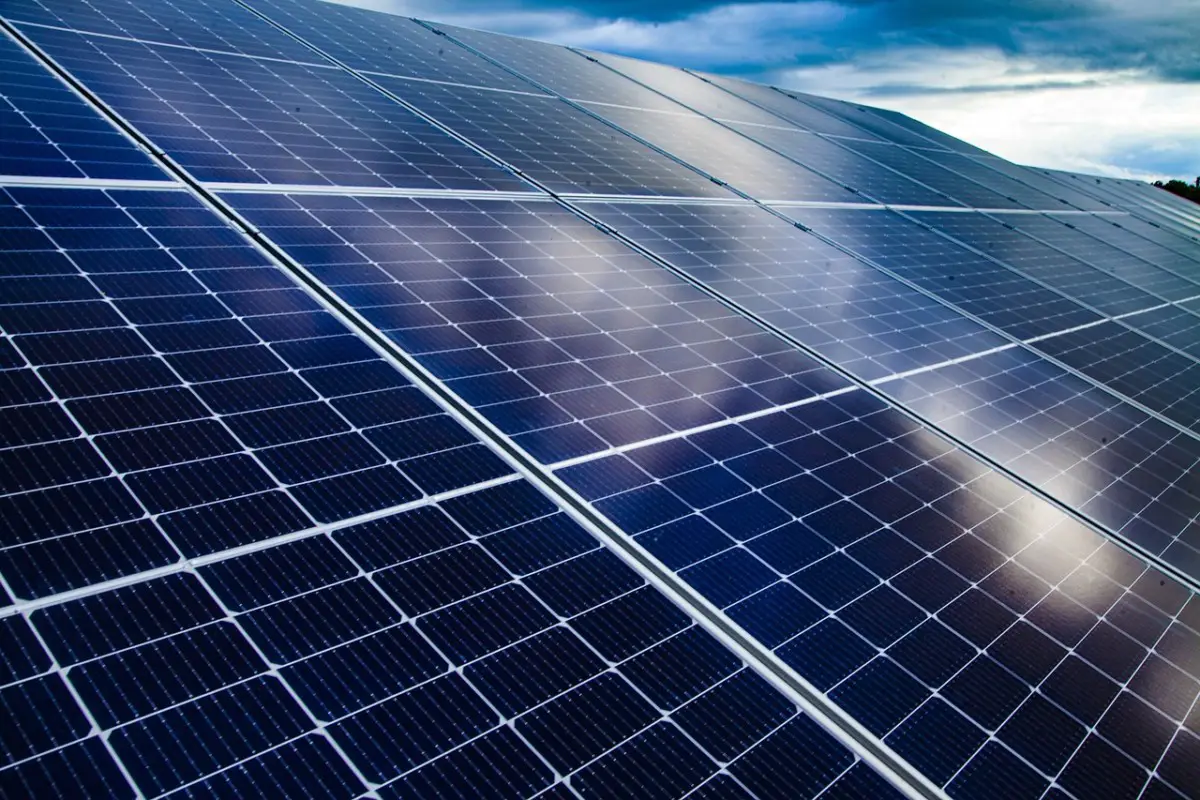
21. Hedge Against Energy Price Volatility
Fossil fuel prices are known for their volatility, which can lead to unpredictable energy costs. Solar energy offers a stable and predictable energy source, helping homeowners hedge against future energy price fluctuations.
22. Innovative Financing Options
Various financing options, such as solar leases and power purchase agreements, make going solar more accessible for homeowners who may not have the upfront capital. These innovative financing methods allow individuals to install solar panels with little or no upfront costs.
23. Positive Impact on Local Economy
Investing in solar energy supports local businesses, solar installers, and manufacturers, contributing to the growth of the regional economy.
24. Environmental Leadership
Going solar demonstrates environmental leadership, inspiring others in your community to follow suit and adopt renewable energy solutions.
25. Lowering the Heat Island Effect
Solar panels can help reduce the urban heat island effect. Urban areas tend to absorb and retain more heat than rural areas, leading to higher temperatures in cities, especially during the summer. By installing solar panels on rooftops and open spaces, you can create shaded surfaces that reflect sunlight and reduce the heat absorbed by buildings, sidewalks, and streets, thus mitigating the heat island effect.
26. Contribution to a Resilient Grid
The integration of solar energy into the power grid enhances its resilience and reliability. Distributed solar systems, such as rooftop solar panels, reduce the strain on the centralized grid and make it more resilient to power outages caused by natural disasters or other emergencies.
27. Positive Impact on Public Health
Shifting to solar energy also has indirect health benefits. As we reduce our reliance on fossil fuels and decrease harmful emissions, the air becomes cleaner, leading to improved air quality and better respiratory health for the community.
28. Off-Grid Possibilities
For remote or off-grid locations, solar energy provides an excellent solution for electricity generation. Solar panels combined with energy storage systems allow for a sustainable and independent power supply, even in areas without access to the traditional electricity grid.
29. Support for Renewable Portfolio Standards
Many states and regions have set renewable portfolio standards (RPS), requiring a specific percentage of energy to be generated from renewable sources. Embracing solar energy helps support these targets and contributes to a more sustainable energy mix.
30. Encouraging Technological Innovation
The increasing demand for solar energy has spurred technological innovation in the renewable energy sector. By adopting solar, you encourage further research and development in clean energy technologies, driving progress toward a cleaner and more sustainable future.
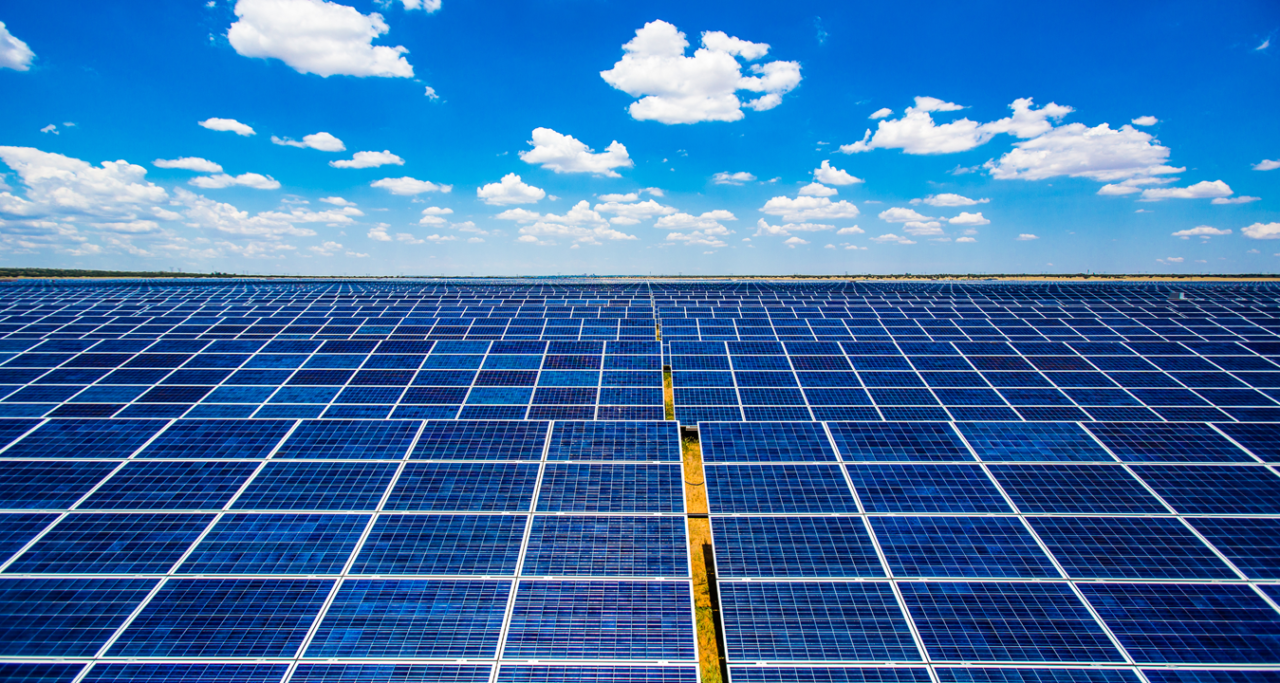
31. Versatility of Solar Applications
Solar energy is versatile and can be utilized in various applications beyond electricity generation. Solar water heaters, solar-powered vehicles, and solar-powered gadgets are just a few examples of how solar energy can be harnessed for diverse purposes.
32. Eco-Tourism and Sustainability
Solar-powered establishments are becoming increasingly attractive to eco-tourists and sustainability-conscious travelers. By going solar, hotels, resorts, and eco-lodges can attract a growing market of environmentally conscious tourists, enhancing their brand reputation.
33. Energy Equity and Access
Solar energy has the potential to provide electricity to remote and underprivileged communities that may not have access to reliable power sources. Through community solar projects and off-grid installations, solar energy can improve energy equity and enhance livelihoods.
34. Supporting Research and Development
Investing in solar energy supports research and development initiatives focused on improving solar technology, energy storage solutions, and other renewable energy advancements.
35. Resilience Against Energy Shortages
During times of energy shortages or supply disruptions, solar-powered systems continue to provide electricity, ensuring continuity and reliability.
36. Positive Corporate Image
For businesses, embracing solar energy can enhance their corporate image and reputation as socially responsible and environmentally conscious entities.
37. Contribution to Global Climate Goals
Solar energy adoption plays a crucial role in achieving global climate goals, such as those outlined in the Paris Agreement, to limit global warming and combat climate change.
38. Reduction of Noise Pollution
Unlike traditional power generation methods, solar panels generate electricity silently, reducing noise pollution in the vicinity.
39. Low Water Consumption
Solar energy systems consume minimal water during operation, making them a sustainable choice in water-scarce regions.
40. Enabling Energy Democracy
By empowering individuals and communities to produce their electricity, solar energy contributes to energy democracy and decentralization of power generation.
FAQs (Frequently Asked Questions)
Q: How much can I save by going solar?
A: The savings from going solar depend on various factors, including location, energy consumption, and solar system size. On average, homeowners can save thousands of dollars over the lifetime of their solar panels.
Q: Are there tax incentives for going solar?
A: Yes, many governments offer tax credits and incentives to promote solar energy adoption. These incentives can significantly reduce the cost of installing solar panels.
Q: What happens on cloudy days or at night?
A: Solar panels can still generate some electricity on cloudy days, although their output will be lower than on sunny days. During the night, solar panels don’t produce electricity, but energy storage solutions can provide power during these times.
Q: How long do solar panels last?
A: Solar panels are designed to last for several decades. Most panels come with warranties ranging from 20 to 25 years, and they can continue producing electricity well beyond that period.
Q: Can I sell excess energy back to the grid?
A: Many regions offer net metering programs that allow solar panel owners to sell excess electricity back to the grid, earning credits or cash for their contributions.
Q: How do I choose the right solar system for my home?
A: Consult with a reputable solar installer to assess your energy needs, roof suitability, and budget. They can recommend the best solar system tailored to your specific requirements.
Conclusion: Embrace the Solar Revolution
Now is undeniably the best time to go solar. With declining installation costs, generous incentives, and advancements in solar technology, the benefits of transitioning to solar energy are abundant. From reducing energy bills to supporting a sustainable future, solar power offers a brighter and cleaner alternative to traditional energy sources.
Embrace the solar revolution and become a part of the global movement towards a greener, more sustainable planet. By harnessing the power of the sun, you not only secure your energy future but also contribute to a healthier and more resilient world for generations to come.


